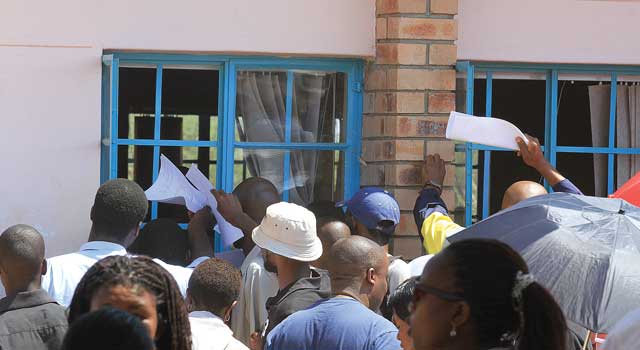QUEEN MOSARWE
Permanent Secretary in the Ministry of Lands and Housing and the ministry accounting officer, Thato Raphaka, has told the Public Accounts Committee (PAC) that the ministry is faced with challenges of land allocation corruption which does not only take place amongst ministry officials but citizens as well. Appearing before the committee on Friday, Raphaka said the public is engaged in corrupt activities like selling of land while purporting to be land board officials. He said in some instances, some people have certificates or issue land certificates similar to those issued by Land boards, a practice he said was against the law.
“There are so many challenges we face around corruption on land allocation and we continue to talk to community leaders because land allocation is not the prerogative of the land boards. The leadership and the community at large have the responsibility to make sure that they jealously guard against people who allocate land illegally.”
On the issue of long waiting periods and lists for land allocation, Raphaka said the ministry is aware of the lists. “The waiting lists are primarily long because individuals apply to various land board areas , thereby the individual’s names appear on lists of various areas thereby making the lists seem long, while in fact they are not,” Raphaka explained, further highlighting that the current waiting lists are more than the country’s population.
Raphaka’s submission was however interjected by PAC member Dithapelo Keorapetse who said the situation was aggravated by long periods before one is allocated land and the scarcity of land in the country thereby people applying for land in more than one area. “ Can you blame the people when you take more than ten years to allocate them a plot? You expect them to just wait for you? They have to keep on trying their luck in other areas,” Keorapetse said, adding that it was up to the ministry to filter out and analyse the land available. “This is what causes Batswana to be applying for land in all areas. You should also pronounce a policy statement to the effect than one person can only be allocated a single plot.”
Raphaka said they are however optimistic of the Land Administration, Processes, Capacity and Systems (LAPCAS) project in assisting to curb corruption as it identifies and shows who owns which land, where, and the extent of coverage of the land. He said the project will also assist in the future to plan for all land in the country. Furthermore, he said the ministry recently initiated another project on land information to follow on LAPCAS. The Land Information System he said, is a technological project that will also assist to identify and enable the ministry to store land ownership information in the country.
“Currently, we do not have a robust system that can help track the ownership of land and we believe the land information system will assist us to tract down all those people who are purporting to be land owners though not owning the land,” he said, stating that the Land Information System will be interfaced with the national registration project such that whenever an individual is allocated land, the land boards would easily access their information on the national registration system such that any other land owned by the individual will be known. “As of now we do not have any system that can give us that information,” he said.

